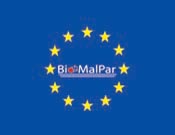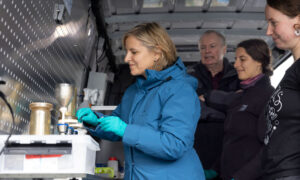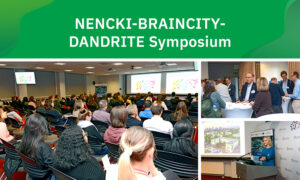With joint forces against Malaria
BioMalPar Logo Scientists from all over the world tackle the global threat of Malaria at the second annual BioMalPar conference

Today the network of excellence for Biology and Pathology of the Malaria Parasite (BioMalPar), will bring together the world’s elite in the field of Malaria research at the European Molecular Biology Laboratory (EMBL) in Heidelberg. At the second annual BioMalPar conference, organised jointly by Institut Pasteur Paris (France), Leiden University Medical Centre (The Netherlands), Imperial College London (UK) and the University of Heidelberg (Germany), some of the most eminent experts address the hot questions around Malaria and present their newest research findings.
Malaria remains one of the world’s biggest health problems. Every 30 seconds Malaria kills a child in Africa and of the 500 million people that get infected with the disease each year well over one million die. Malaria is an infectious disease that is caused by a parasite called Plasmodium. Plasmodium survives in certain types of mosquitoes, whose bites transmit the microbe to humans where it causes many problems, but most commonly severe, recurring fever attacks. Over 40 per cent of the world’s population in more than 90 countries is currently at risk and the numbers are increasing steadily.
“Malaria is a disease of poverty and it is on the rise”, says Andy Waters, who heads the Malaria Research group at the Leiden University Medical Centre and is one of the organisers of the BioMalPar conference, “it affects large parts of Africa, Asia and the Americas and with the current failure to find a suitable vaccine and the failure of our frontline affordable drugs the misery caused by malaria is multiplying. Although scientists have been working to find cures for a long time much of that research has been fragmented. The BioMalPar network is a new European mechanism to join forces and bring together the best European scientists to collectively search for solutions.”
BioMalPar, funded by the European Union’s Malaria Initiative, is an effort of 20 European and African institutions to achieve the required collaboration between scientists. Representatives of basic and applied research pool their complementary expertise, resources and ideas in a network of excellence to tackle Malaria in a coordinated fashion.
The network organises exchanges of personnel between its European and African members to integrate extensive theoretical knowledge with the field experience of scientists from affected countries. It creates a direct flow of information from the laboratory to the implementation in malaria-endemic regions and aims at strengthening the research capacity in Africa.
“Since its foundation in 2004, BioMalPar has greatly advanced our understanding of the biological mechanisms that underlie Malaria”, says Fotis Kafatos, Professor of Immunogenomics at Imperial College London and former Director General at EMBL, who is one of the organisers of the conference. “Without such fundamental knowledge, the longer-term prospects of addressing the challenge of malaria would be bleak.”
The annual conference is an opportunity for all members of the pan-continental partnership to meet and exchange their best practices, present their newest findings and discuss the future direction of Malaria research. Today, in front of an audience of 250 international scientists, topics like the genetic and molecular basis of the parasite’s disease mechanisms, genetic modifications of mosquitoes to prevent spreading of the disease and the latest advances in drug and vaccine development are discussed in seminars and poster sessions.



